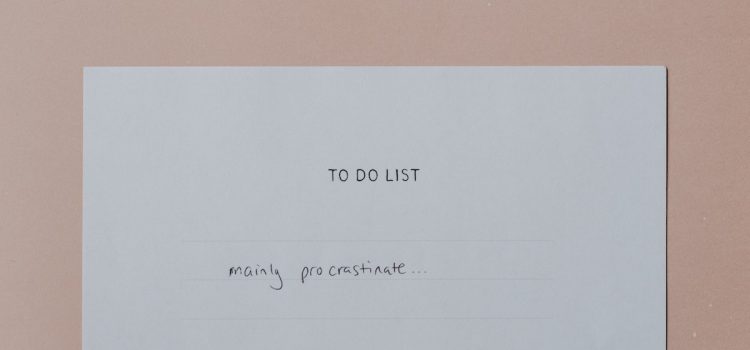

This article is an excerpt from the Shortform book guide to "The Procrastination Equation" by Piers Steel. Shortform has the world's best summaries and analyses of books you should be reading.
Like this article? Sign up for a free trial here.
What are the top three reasons for procrastinating? What is the psychology behind procrastination?
In The Procrastination Equation, Piers Steel defines procrastination as purposefully putting off tasks against your better judgment and contrary to your best interests. He also gives the top three reasons we procrastinate.
Let’s dive into those reasons to see if you fall into any of these categories.
Reason #1: We Choose Instant Gratification Over Long-Term Gain
First, Steel argues that one of the reasons for procrastinating is that choosing instant gratification over long-term gain often plays a substantial role in procrastination. People who procrastinate for this reason choose rewards they can get right away over those they have to wait for, even if the payoff of waiting is much larger.
Therefore, rather than working toward long-term goals step-by-step, these procrastinators are more likely to put off tasks with future deadlines until the last minute. They procrastinate by making impulsive decisions that bring them immediate pleasure without fully considering the consequences of delaying their more important tasks. This creates urgency and stress once they finally reach deadlines and have to complete the tasks in drastically shortened time windows.
Steel says the tendency to act on impulses for immediate rewards stems from a general human propensity to view future tasks as abstract and immediate tasks as concrete. When we think of tasks and concerns in abstract terms, we’re less likely to act on them, making us more likely to act based on immediate instead of future concerns.
For example, say you’re an artist, and you want to submit your painting to an art show. The deadline to submit is a month away, which feels abstract, so you don’t fill out your application yet. Over the next few weeks, every time you think about filling it out, you tell yourself that you still have plenty of time. You choose to do something more concrete and immediately enjoyable instead, like reading a book or scrolling through social media. Then, one day, you realize there’s just a few hours until the deadline, and you have to scramble to get your application materials together. They aren’t as good as they could have been if you’d acted sooner, and you cause yourself a lot of unnecessary stress trying to get them in on time.
Reason #2: We Dislike What We’re Doing
Second, Steel states, we often procrastinate on tasks we dislike and find unpleasant, dull, or pointless. This is due to the value we place on tasks, which stems from our relative enjoyment of them—the less we enjoy doing something, the less valuable we find it, and the less motivated we are to do it promptly. Instead, we spend time on activities we enjoy doing more.
For example, many of us put off paying monthly bills until the last minute. The task is tedious, and boring tasks are one of the things we most commonly procrastinate on. Additionally, it can be stressful watching large amounts of money leave our accounts every month, contributing to our dislike of the task and making us want to delay it as long as we can.
Reason #3: We Believe We’ll Fail
According to Steel, many of us procrastinate because we believe we’ll fail at the task we’re avoiding. Instead of pursuing the task and risking the pain of failure, we postpone it as long as we can.
For example, say you’ve been going on dates to eventually start a new relationship. However, you’ve had several bad dates in a row, and your self-confidence begins to decline. You start postponing and canceling dates, assuming they’re going to fail, which takes you further from your original goal of finding a partner.

———End of Preview———
Like what you just read? Read the rest of the world's best book summary and analysis of Piers Steel's "The Procrastination Equation" at Shortform.
Here's what you'll find in our full The Procrastination Equation summary:
- Strategies to help procrastinators increase their motivation and control
- How to make unpleasant tasks feel more valuable for yourself
- Why procrastinators are typically less financially successful






